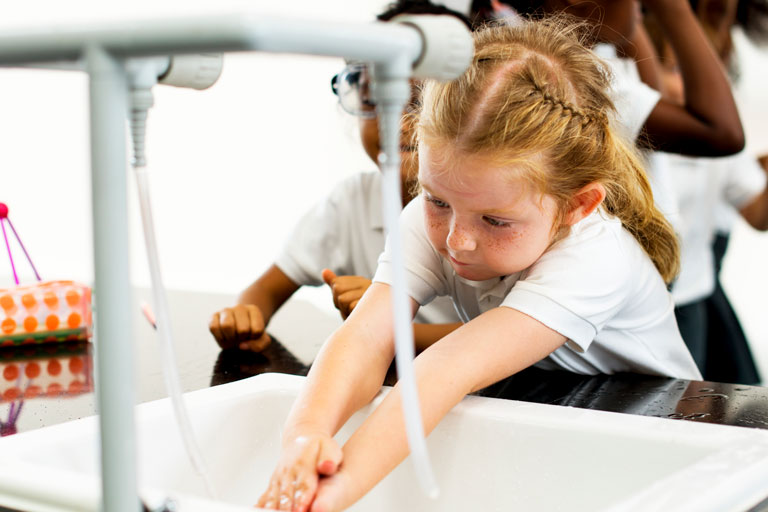July 16, 2020
The start of the academic school year is typically a time of excitement for parents and kids as they prepare to return to school. But a new surge in coronavirus cases in the U.S., and a lack of uniformity in plans for how schools should reopen, has left a lot of parents uncertain on whether their children should return to school this fall.
Researchers at Indiana University are speaking out on what pitfalls may lie ahead and providing advice for struggling parents. Aaron Carroll, a professor of pediatrics at the IU School of Medicine, says everyone agrees there is both educational and social value to in-person teaching, but there must be measures in place, and resources available, for schools to ensure everyone’s safety. Carroll and IUPUI epidemiologist Tom Duszynski agree that the verdict is still out on whether small children can be infected at the same rate as adults or spread the virus the same way. But, Duszynski says, while young children are less likely to show symptoms, it is still possible for some children to exhibit severe symptoms and to increase the risk to teachers of contracting the virus. Duszynski also emphasizes that the virus can mutate and has, and will continue, to change over time.
Both Carroll and Duszynski say zero infection is unrealistic for schools and parents to expect. The goal, they say, is minimizing the risk of spreading the virus by maintaining current practices such as social distancing, being outside when possible, wearing a mask, and continuous hand washing. They also agree that the days of sending your child to school with even a slight cold or illness are over.
But for some parents, keeping your child at home is not a realistic option. Jessica Calarco, a professor of sociology in the College of Arts and Sciences at IU Bloomington, says forcing parents to choose could result in increased inequality in education. Wealthier parents, or those with the option to stay at home, will more likely keep their children home, choosing online education or private tutors. On the contrary, those with fewer resources may be forced to send their children to less-than-safe schools. Calarco says privileged families leaving public schools shifts needed resources from those schools and may undermine the public’s confidence in the equality of public education and the necessity of funding it as a public good.
Anne Leftwich, associate professor in the IU Bloomington School of Education, says funding is absolutely on the minds of schools as they determine when, and if, to reopen. But so is safety. Teachers are under enormous pressure to maintain the safety of the children they serve, Leftwich says, and developing plans is difficult. And the ever-changing scenario is forcing to schools to create additional back-up plans to continue education if schools are forced to shut down.
So, what can parents and teachers do as they navigate this tough time? Licensed psychologist and parenting expert Beth Trammel, an associate professor at IU East, says while it is normal for many people to feel anxious right now, we can try to minimize that anxiety by eliminating some of the triggers that cause it, such as viewing opinions on social media. Parents should take time to eliminate the excess noise and to take a break when possible. She also encourages parents to remember that there is no right or wrong answer. It is enough, she says, to just do the best you can for your child.


